-
 bitcoin
bitcoin $87959.907984 USD
1.34% -
 ethereum
ethereum $2920.497338 USD
3.04% -
 tether
tether $0.999775 USD
0.00% -
 xrp
xrp $2.237324 USD
8.12% -
 bnb
bnb $860.243768 USD
0.90% -
 solana
solana $138.089498 USD
5.43% -
 usd-coin
usd-coin $0.999807 USD
0.01% -
 tron
tron $0.272801 USD
-1.53% -
 dogecoin
dogecoin $0.150904 USD
2.96% -
 cardano
cardano $0.421635 USD
1.97% -
 hyperliquid
hyperliquid $32.152445 USD
2.23% -
 bitcoin-cash
bitcoin-cash $533.301069 USD
-1.94% -
 chainlink
chainlink $12.953417 USD
2.68% -
 unus-sed-leo
unus-sed-leo $9.535951 USD
0.73% -
 zcash
zcash $521.483386 USD
-2.87%
Coinbase vs Robinhood for buying crypto?
Coinbase offers advanced crypto features like staking and wallet transfers, while Robinhood provides a simplified, zero-commission trading experience with limited blockchain utilities.
Jul 03, 2025 at 05:00 am
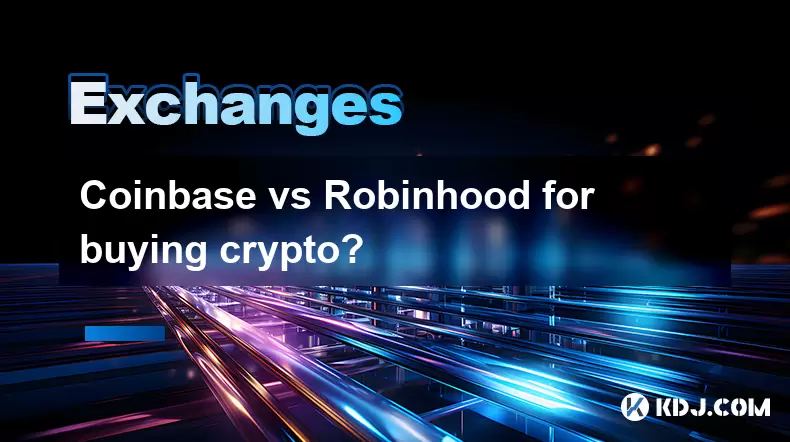
Understanding the Platforms: Coinbase and Robinhood
When comparing Coinbase and Robinhood, it's essential to understand their core functions. Coinbase is a dedicated cryptocurrency exchange that allows users to buy, sell, store, and manage digital assets with advanced tools and security features. In contrast, Robinhood is primarily known as a stock trading platform that added cryptocurrency trading to its services, offering a simplified experience for beginners.
The main difference between the two platforms lies in their focus and functionality. Coinbase offers more comprehensive crypto-related features such as staking, earning interest, and transferring funds to external wallets. On the other hand, Robinhood Crypto provides a streamlined interface without wallet transfer capabilities and limited support for blockchain-based utilities.
User Interface and Accessibility
Both platforms offer user-friendly interfaces, but they cater to different types of investors. Coinbase provides a clean and intuitive design suitable for both novice and experienced users. It also includes educational resources like the Coinbase Earn program, which rewards users with small amounts of crypto for learning about different coins.
Robinhood takes simplicity to another level by offering a minimalistic layout that resembles its stock trading interface. This can be advantageous for those who are already familiar with the app or prefer a less technical approach. However, Robinhood lacks many advanced features found on Coinbase, such as real-time charts, detailed transaction history, and portfolio analytics.
Fees and Transaction Costs
Fees play a crucial role when choosing a platform for buying crypto. Coinbase charges fees based on the payment method and transaction size. For example, using a credit or debit card incurs higher fees compared to bank transfers. Additionally, Coinbase applies a spread on top of the market price, which can vary depending on market conditions.
In contrast, Robinhood Crypto advertises zero-commission trades, making it attractive to cost-conscious users. However, while there are no direct fees for buying and selling, Robinhood incorporates a bid-ask spread into its pricing model. This means users might pay slightly more than the actual market value without realizing it.
It’s important to compare these costs carefully, especially if you plan to trade frequently or invest large amounts.
Security and Regulatory Compliance
Security is a major concern for any cryptocurrency investor. Coinbase has a strong reputation in this area, employing robust encryption, two-factor authentication, and storing most user funds offline in cold storage. The platform is also regulated and insured, providing an extra layer of protection against theft or breaches.
Robinhood Crypto also implements standard security measures, including encryption and account verification. However, since Robinhood doesn’t allow users to transfer crypto off the platform, some argue that it limits control over private keys and reduces flexibility. Both platforms comply with U.S. financial regulations, but Coinbase has been more transparent about its compliance efforts and insurance policies.
Supported Cryptocurrencies and Features
The variety of available cryptocurrencies can influence your choice between Coinbase and Robinhood. Coinbase supports a wide range of tokens, including major ones like Bitcoin, Ethereum, Litecoin, and many altcoins. It also regularly adds new projects after thorough vetting.
Robinhood Crypto, however, offers fewer options. While it covers popular names like Bitcoin, Ethereum, Dogecoin, and Solana, it excludes many smaller or newer cryptocurrencies. Additionally, Robinhood does not support features like staking, governance, or decentralized finance (DeFi) integrations, which are accessible through Coinbase.
For users looking to explore beyond basic trading, Coinbase provides more opportunities to engage with the broader crypto ecosystem.
Customer Support and Educational Resources
When issues arise, customer support becomes vital. Coinbase offers 24/7 support via chat and email, along with an extensive help center filled with articles, FAQs, and troubleshooting guides. Premium users can access priority support for faster resolution times.
Robinhood provides customer service through in-app messaging and email, but response times can be slower, and live support options are limited. Its educational content is less comprehensive compared to Coinbase Learn, which includes video tutorials, quizzes, and interactive lessons.
If you're new to crypto or anticipate needing assistance frequently, Coinbase may be the better option due to its superior support infrastructure.
Frequently Asked Questions
Q1: Can I transfer crypto from Robinhood to another wallet?No, Robinhood does not allow users to transfer cryptocurrency off the platform. All holdings remain within the app, limiting control and flexibility compared to Coinbase.
Q2: Is Coinbase safer than Robinhood for crypto investments?Both platforms implement strong security protocols, but Coinbase offers additional protections such as FDIC insurance on USD balances and cold storage for most crypto assets, giving it an edge in perceived safety.
Q3: Which platform offers better crypto education tools?Coinbase Learn provides interactive courses, quizzes, and rewards for learning about various cryptocurrencies, making it more comprehensive than Robinhood’s limited educational content.
Q4: Does Robinhood charge hidden fees for crypto transactions?While Robinhood claims zero-commission trades, it earns revenue through a bid-ask spread, meaning users may pay slightly more than the market price without explicit fee notifications.
Disclaimer:info@kdj.com
The information provided is not trading advice. kdj.com does not assume any responsibility for any investments made based on the information provided in this article. Cryptocurrencies are highly volatile and it is highly recommended that you invest with caution after thorough research!
If you believe that the content used on this website infringes your copyright, please contact us immediately (info@kdj.com) and we will delete it promptly.
- Trump Dives Deeper into Crypto: Launch of New Coin Fuels Market Buzz and Regulatory Scrutiny
- 2026-02-06 15:40:02
- Spur Protocol Airdrop Claim Details Emerge Amidst Market Volatility
- 2026-02-06 15:50:01
- Naira's Dynamic Dance: Navigating Depreciation and Resilience in Nigeria's Official Exchange Market
- 2026-02-06 15:35:02
- Strategy's Bitcoin Bet Sours: Billions in Loss as Crypto Faces Reckoning
- 2026-02-06 15:50:01
- NYC Reacts: Bitcoin Price Sees Sharp BTC Fall, Fueling Market Uncertainty
- 2026-02-06 13:20:01
- CME Coin Ignites Wall Street's Tokenized Finance Revolution: A New Era Dawns
- 2026-02-06 13:20:01
Related knowledge

How to contact Bybit customer support for urgent help?
Feb 05,2026 at 11:40pm
Accessing Bybit Support via Live Chat1. Log in to your Bybit account using the official website or mobile application. 2. Navigate to the Help Center ...
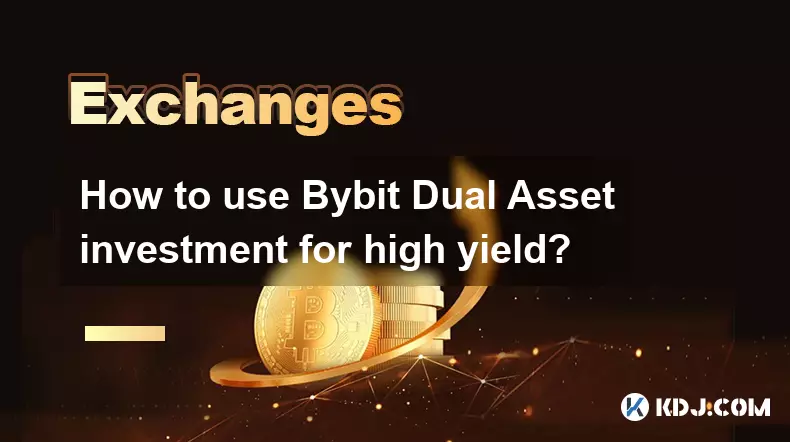
How to use Bybit Dual Asset investment for high yield?
Feb 06,2026 at 12:20am
Understanding Bybit Dual Asset Investment Mechanics1. Dual Asset Investment is a structured product offered by Bybit that combines a stablecoin deposi...
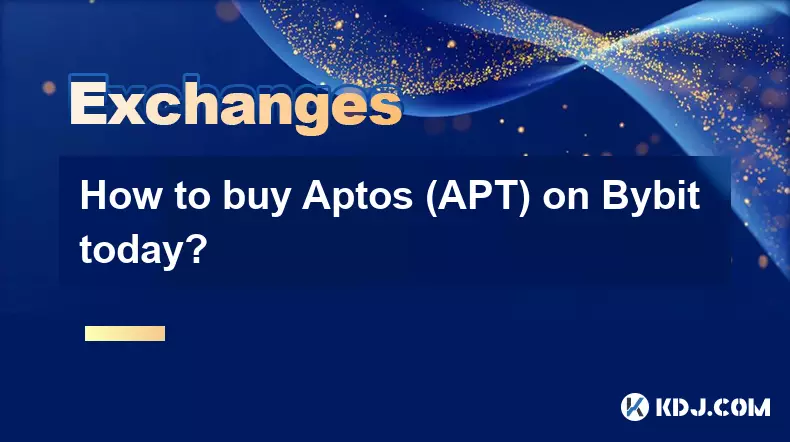
How to buy Aptos (APT) on Bybit today?
Feb 06,2026 at 07:40am
Creating a Bybit Account1. Navigate to the official Bybit website and click the “Sign Up” button located at the top right corner of the homepage. Ente...

How to use Bybit Shark Fin for principal-protected returns?
Feb 06,2026 at 03:40pm
Understanding Shark Fin Structure1. Shark Fin products on Bybit are structured derivatives designed to offer capital protection while enabling exposur...
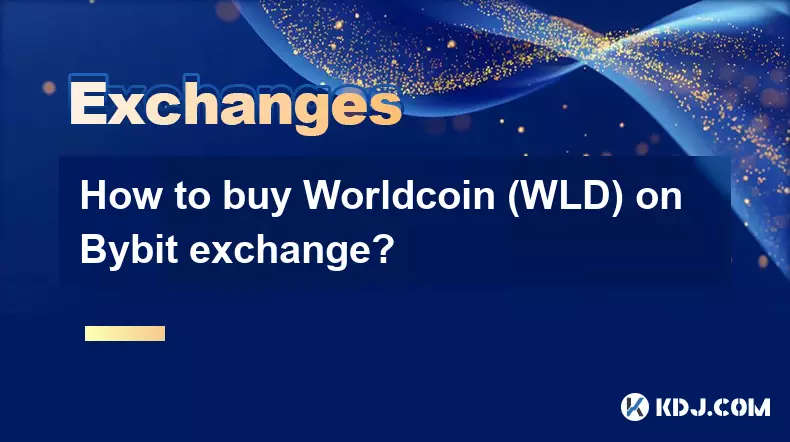
How to buy Worldcoin (WLD) on Bybit exchange?
Feb 05,2026 at 04:39pm
Account Registration and Verification1. Navigate to the official Bybit website and click the 'Sign Up' button located in the top-right corner. 2. Ente...
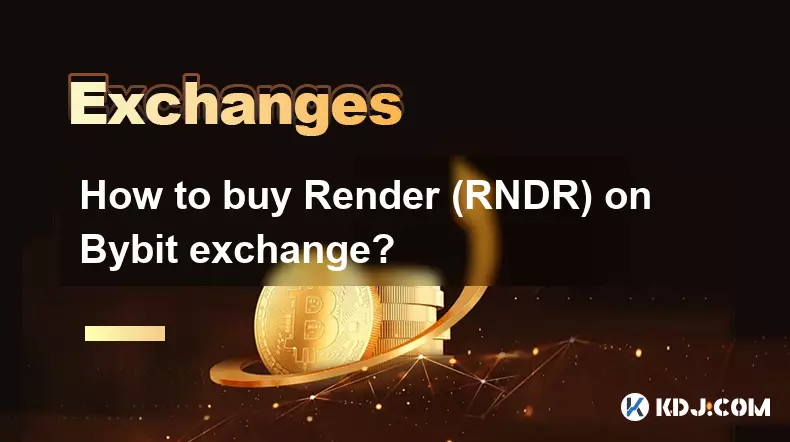
How to buy Render (RNDR) on Bybit exchange?
Feb 05,2026 at 01:39pm
Creating and Verifying Your Bybit Account1. Visit the official Bybit website and click the “Sign Up” button located at the top right corner of the hom...

How to contact Bybit customer support for urgent help?
Feb 05,2026 at 11:40pm
Accessing Bybit Support via Live Chat1. Log in to your Bybit account using the official website or mobile application. 2. Navigate to the Help Center ...

How to use Bybit Dual Asset investment for high yield?
Feb 06,2026 at 12:20am
Understanding Bybit Dual Asset Investment Mechanics1. Dual Asset Investment is a structured product offered by Bybit that combines a stablecoin deposi...

How to buy Aptos (APT) on Bybit today?
Feb 06,2026 at 07:40am
Creating a Bybit Account1. Navigate to the official Bybit website and click the “Sign Up” button located at the top right corner of the homepage. Ente...

How to use Bybit Shark Fin for principal-protected returns?
Feb 06,2026 at 03:40pm
Understanding Shark Fin Structure1. Shark Fin products on Bybit are structured derivatives designed to offer capital protection while enabling exposur...

How to buy Worldcoin (WLD) on Bybit exchange?
Feb 05,2026 at 04:39pm
Account Registration and Verification1. Navigate to the official Bybit website and click the 'Sign Up' button located in the top-right corner. 2. Ente...

How to buy Render (RNDR) on Bybit exchange?
Feb 05,2026 at 01:39pm
Creating and Verifying Your Bybit Account1. Visit the official Bybit website and click the “Sign Up” button located at the top right corner of the hom...
See all articles










































































